Lee Clow, Chairman and Global Director of Apple's go-to ad agency TBWA/Media Arts, recently discussed the 30 years he spent working with Steve Jobs, as well as the history behind now iconic commercials like those from the "Think Different" campaign.
The ten-minute clip, spotted by Business Insider, comes from the PTTOW conference held recently in May and shows Clow giving a short rundown of his history with Jobs and Apple. More importantly, the legendary adman gives an inside look into how Jobs understood branding and used that knowledge to change the consumer electronics landscape.
One interesting tidbit from the speech is Clow's take on how Jobs decided on the name Apple. He notes the many legends surrounding the Cupertino company's name, including a story that claims Jobs settled on the name as he was eating an apple when working on the Apple I with Steve Wozniak in his parent's garage.
Clow believes, however, that the tech guru knew personal computing would be somewhat daunting to the masses, and wanted a company name that would seem non-threatening. Jobs was a student of brands, including Sony, which changed its name from the pedestrian "Tokyo Tsoshiu Kogyo KK" because "Sony" sounded inviting and "sunny."
Also touched upon was the famous "Here's to the Crazy Ones" TV spot which Clow said summed up Jobs' values of Apple, as well as his admiration for the people who had vision and tried to change the world. The story has been told before, but Clow offers his own take on the conversation leading up to the ad's airing.
"I tried to convince him to be the voice on that commercial," Clow said, "and he naturally called me the next morning — after I argued with him way into the night — and said 'Lee, we gotta go with Richard Dreyfuss,' who was the voice that was actually on it, 'because if people think this is about me and not about Apple, then we'll have blown everything.'"
Clapping slowly, Clow quipped, "Yeah, that's why you're the genius and I'm just the ad guy."
 AppleInsider Staff
AppleInsider Staff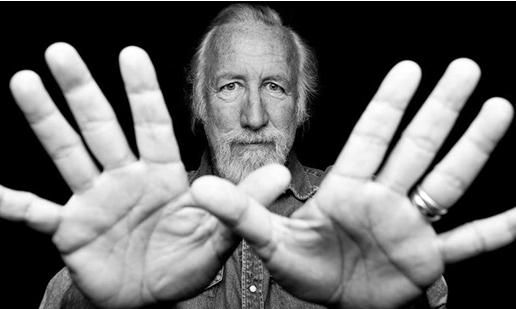

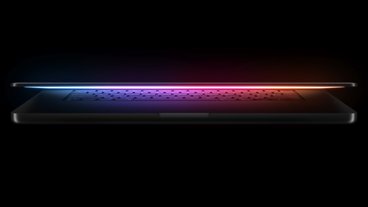

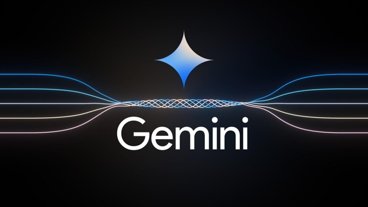
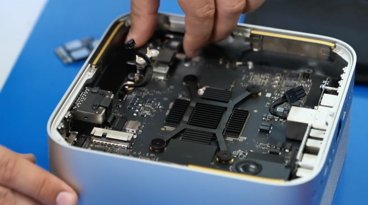








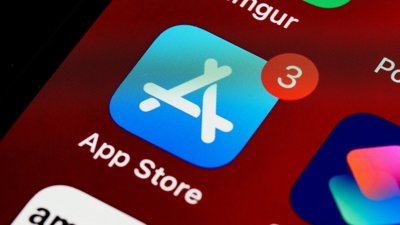
 William Gallagher
William Gallagher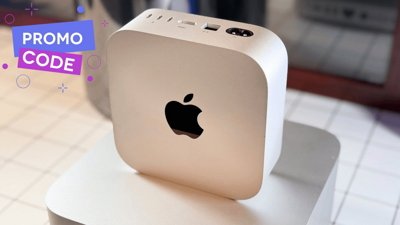
 Christine McKee
Christine McKee
 Sponsored Content
Sponsored Content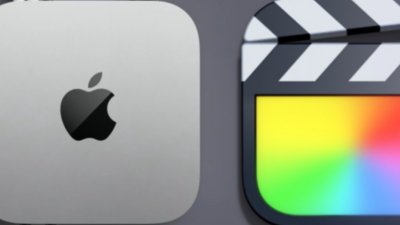

 Malcolm Owen
Malcolm Owen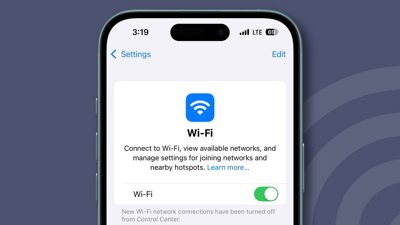
 Andrew Orr
Andrew Orr
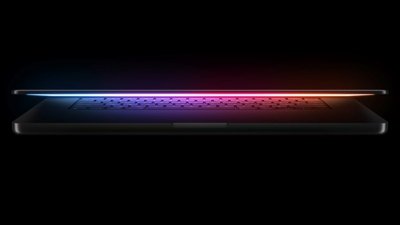
 Wesley Hilliard
Wesley Hilliard

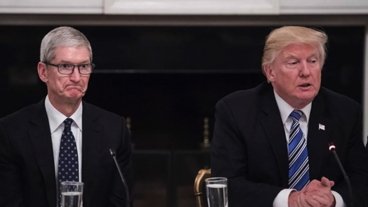






45 Comments
What a difference compared to most of these overpaid CEOs who think "ok, the products of my company suck, sure, but look how smart I am" ... which does not end up with very good results ...
Shame we didn't get to see the first clip that ended with the Apple icon coinciding with that cool 8 bit sound. Was probably a cool video.
I would rather hear what the real story was, not what some outsider 'believes' was the truth.
Piece from the bio: Advertising Jobs was not happy with the original ads for the iPad. As usual, he threw himself into the marketing, working with James Vincent and Duncan Milner at the ad agency (now called TBWA/Media Arts Lab), with Lee Clow advising from a semiretired perch. The commercial they first produced was a gentle scene of a guy in faded jeans and sweatshirt reclining in a chair, looking at email, a photo album, the New York Times, books, and video on an iPad propped on his lap. There were no words, just the background beat of “There Goes My Love” by the Blue Van. “After he approved it, Steve decided he hated it,” Vincent recalled. “He thought it looked like a Pottery Barn commercial.” Jobs later told me: It had been easy to explain what the iPod was—a thousand songs in your pocket—which allowed us to move quickly to the iconic silhouette ads. But it was hard to explain what an iPad was. We didn’t want to show it as a computer, and yet we didn’t want to make it so soft that it looked like a cute TV. The first set of ads showed we didn’t know what we were doing. They had a cashmere and Hush Puppies feel to them. James Vincent had not taken a break in months. So when the iPad finally went on sale and the ads started airing, he drove with his family to the Coachella Music Festival in Palm Springs, which featured some of his favorite bands, including Muse, Faith No More, and Devo. Soon after he arrived, Jobs called. “Your commercials suck,” he said. “The iPad is revolutionizing the world, and we need something big. You’ve given me small shit.” “Well, what do you want?” Vincent shot back. “You’ve not been able to tell me what you want.” “I don’t know,” Jobs said. “You have to bring me something new. Nothing you’ve shown me is even close.” Vincent argued back and suddenly Jobs went ballistic. “He just started screaming at me,” Vincent recalled. Vincent could be volatile himself, and the volleys escalated. When Vincent shouted, “You’ve got to tell me what you want,” Jobs shot back, “You’ve got to show me some stuff, and I’ll know it when I see it.” “Oh, great, let me write that on “my brief for my creative people: I’ll know it when I see it.” Vincent got so frustrated that he slammed his fist into the wall of the house he was renting and put a large dent in it. When he finally went outside to his family, sitting by the pool, they looked at him nervously. “Are you okay?” his wife finally asked.” “It took Vincent and his team two weeks to come up with an array of new options, and he asked to present them at Jobs’s house rather than the office, hoping that it would be a more relaxed environment. Laying storyboards on the coffee table, he and Milner offered twelve approaches. One was inspirational and stirring. Another tried humor, with Michael Cera, the comic actor, wandering through a fake house making funny comments about the way people could use iPads. Others featured the iPad with celebrities, or set starkly on a white background, or starring in a little sitcom, or in a straightforward product demonstration. After mulling over the options, Jobs realized what he wanted. Not humor, nor a celebrity, nor a demo. “It’s got to make a statement,” he said. “It needs to be a manifesto. This is big.” He had announced that the iPad would change the world, and he wanted a campaign that reinforced that declaration. Other companies would come out with copycat tablets in a year or so, he said, and he wanted people to remember that the iPad was the real thing. “We need ads that stand up and declare what we have done. “He abruptly got out of his chair, looking a bit weak but smiling. “I’ve got to go have a massage now,” he said. “Get to work.” So Vincent and Milner, along with the copywriter Eric Grunbaum, began crafting what they dubbed “The Manifesto.” It would be fast-paced, with vibrant pictures and a thumping beat, and it would proclaim that the iPad was revolutionary. The music they chose was Karen O’s pounding refrain from the Yeah Yeah Yeahs’” Gold”“Lion.” As the iPad was shown doing magical things, a strong voice declared, “iPad is thin. iPad is beautiful. . . . It’s crazy powerful. It’s magical. . . . It’s video, photos. More books than you could read in a lifetime. It’s already a revolution, and it’s only just begun.” Once the Manifesto ads had run their course, the team again tried something softer, shot as day-in-the-life documentaries by the young filmmaker Jessica Sanders. Jobs liked them—for a little while. Then he turned against them for the same reason he had reacted against the original Pottery Barn–style ads. “Dammit,” he shouted, “they look like a Visa commercial, typical ad agency stuff.” He had been asking for ads that were different and new, but eventually he realized he did not want to stray from what he considered the Apple voice. For him, that voice had a distinctive set of qualities: simple, declarative, clean. “We went down that lifestyle path, and it seemed to be growing on Steve, and suddenly he said, ‘I hate that stuff, it’s not Apple,’” recalled Lee Clow. “He told us to get back to the Apple voice. It’s a very simple, honest voice.” And so they went back to a clean white background, with just a close-up showing off all the things that “iPad is . . .” and could do.”
[quote name="charlituna" url="/t/157918/ad-guru-lee-clow-talks-steve-jobs-and-apple-at-pttow-media-summit#post_2341052"]I would rather hear what the real story was, not what some outsider 'believes' was the truth.[/quote] Lee Clow IS an insider. Holy dumb post, batman.